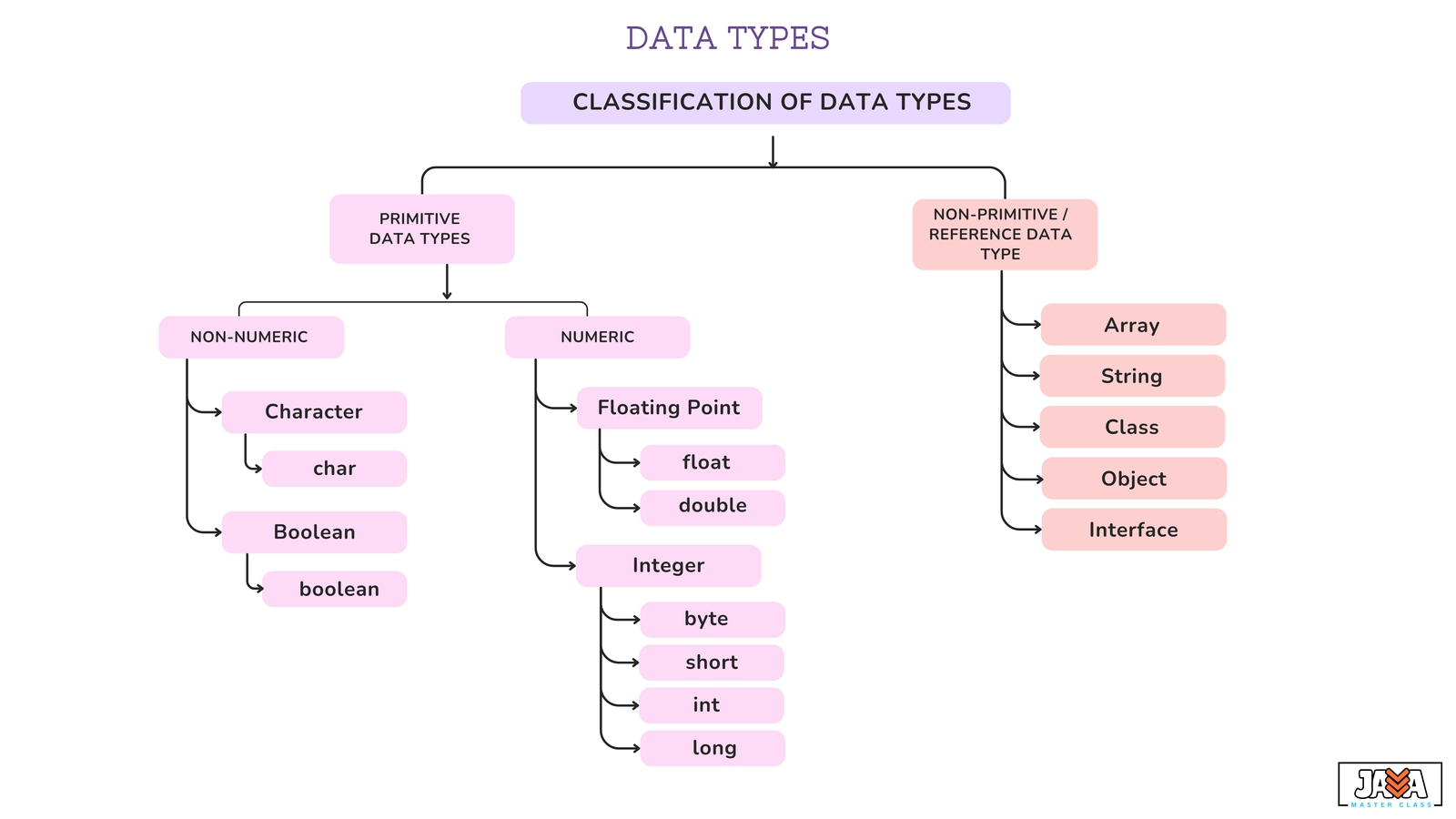Data types define the type of data a variable can hold. They are essential for declaring variables and performing operations on data. Java has two main categories of data types:
- Primitive Data Types – Simple values like numbers, characters, or true/false.
- Non – Primitive / Reference Data Types – Complex types like Strings, Arrays, and Objects.

Primitive Data Types
| Data Type | Size | Stores | Example |
|---|---|---|---|
| byte | 1 byte | Small integers (-128 to 127) | byte age = 25; |
| short | 2 bytes | Medium integers (-32,768 to 32,767) | short year = 2025; |
| int | 4 bytes | Whole numbers | int salary = 50000; |
| long | 8 bytes | Large numbers | long distance = 123456789L; |
| float | 4 bytes | Decimal numbers | float price = 19.99f; |
| double | 8 bytes | Precise decimals | double pi = 3.14159; |
| char | 2 bytes | Single character | char grade = 'A'; |
| boolean | 1 bit | True/False | boolean isJavaFun = true; |
Reference Data Types
| Data Type | Description | Example |
|---|---|---|
| String | A sequence of characters | String name = "Java"; |
| Array | A collection of similar types of elements | int[] numbers = {1, 2, 3, 4}; |
| Class | A blueprint for creating objects | class Dog { String breed = "Labrador"; } |
| Object | An instance of a class | Dog pet = new Dog(); |
| Interface | A contract that a class must follow | interface Animal { void sound(); } |
Differences Between Primitive & Non-Primitive Types
Each data type in Java has a specific use case, determining how much memory it consumes and the operations you can perform on it.
| Feature | Primitive Data Types | Non-Primitive Data Types |
|---|---|---|
| Definition | Stores simple values directly in memory. | Stores references to objects in memory. |
| Examples | int, char, float, boolean |
String, Array, Class, Object |
| Memory Usage | Less memory, as values are stored directly. | More memory, as it stores references. |
| Methods | Cannot call methods directly. | Has built-in methods (e.g., String.length()). |
| Null Value | Cannot be null (except Boolean in wrappers). |
Can be null (e.g., String name = null;). |
| Performance | Faster, as operations work directly on values. | Slower, as objects need to be referenced. |
| Usage | Best for simple values like numbers and characters. | Best for complex data structures like objects and arrays. |
